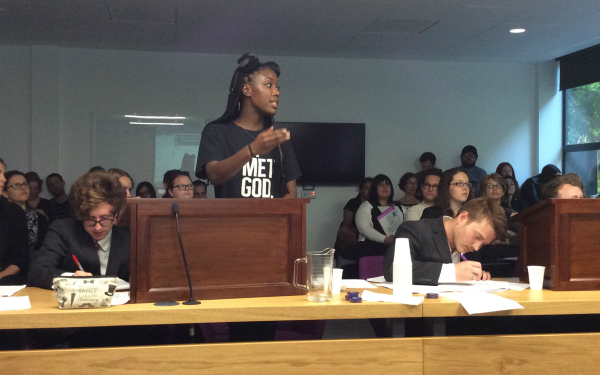
By Denise Turner, lecturer in social work, University of Sussex
My first experience of attending court as a newly qualified social worker was decades ago, but I often share it with my students. I’d accompanied a teenage service user and although slightly disorientated by the unfolding process, I do clearly remember the judge asking to hear from the boy’s social worker. I paused for a moment before I realised with great alarm that was me.
For newly qualified practitioners, the court setting can be overwhelming. The rise in digital technology and social media is also adding to the intricacy of court work, leading to a variety of new ethical complexities. Social workers have traditionally sent paper files to court, but now have to think about transferring electronic data. Similarly, there are debates about viewing service users’ Facebook and other social media accounts to garner data and evidence. The courts use this type of evidence – is it something social workers should be doing?
To tackle these issues, the University of Sussex’s social work and law departments recently teamed up to stage a mock trial event, where we ‘charged’ social media with:
“Being a conduit for the dissemination of hostile and offensive material; presenting a danger to the public good and collective wellbeing.”
Social work students acted as witnesses for the ‘defence’ and ‘prosecution’ and were cross-examined by law students on statements that did not necessarily reflect their own personal views. Both sides were supported by barristers from a local chambers, with the head of chambers acting as resident ‘judge’ for the evening. The event was also broadcast live to 130 viewers and an online ‘jury’ poll was created for people to cast their votes.
In keeping with the ‘court simulation’, journalism students acted as court reporters, preparing a piece for the local newspaper and recording the ‘shock verdict’ of the night. After the audience in the room and online viewers cast a preliminary vote of ‘guilty’ at the start of the evening, the final verdict saw the defence win their case with an overwhelming majority.
‘Building confidence’
Many people watching the broadcast and those tweeting to the hashtag #smot [social media on trial] commented on the skill and poise of all students, which helped to endorse the value of the exercise in increasing students’ confidence in the court setting.
Alison, one of the social work students for the defence, said after the event: “I stood in the witness box feeling nervous and apprehensive as I read out my statement but by the time I was cross-examined, not only did I feel relaxed, I also started to enjoy myself.
“When I consider what social workers are trained to do, this is not surprising. Every day my work involves analysing situations, applying rational thinking and making informed judgements – the exact same process was involved in the witness box.”
Becky, also on the defence, added: “I think a lot of the audience members were very surprised by how well-informed, confident and competent the social work students were and it was great to be involved in something that’s challenge people’s perceptions of social workers too!”
We found that the ‘social media on trial’ event not only proved useful in preparing social work students for professional appearances in court, but also showcased their knowledge, increased their experience of working with other disciplines, and educated those watching.


 A trauma-informed approach to social work: practice tips
A trauma-informed approach to social work: practice tips  Problem gambling: how to recognise the warning signs
Problem gambling: how to recognise the warning signs 




 Find out how to develop your emotional resilience with our free downloadable guide
Find out how to develop your emotional resilience with our free downloadable guide  Develop your social work career with Community Care’s Careers and Training Guide
Develop your social work career with Community Care’s Careers and Training Guide  ‘Dear Sajid Javid: please end the inappropriate detention of autistic people and those with learning disabilities’
‘Dear Sajid Javid: please end the inappropriate detention of autistic people and those with learning disabilities’ Ofsted calls for power to scrutinise children’s home groups
Ofsted calls for power to scrutinise children’s home groups Seven in eight commissioners paying below ‘minimum rate for home care’
Seven in eight commissioners paying below ‘minimum rate for home care’
 Facebook
Facebook X
X LinkedIn
LinkedIn Instagram
Instagram
Why have a mock criminal trial?? – its unlikelybto be mainstream in the job profile for most social workers. Surely a mock family court would have been more approoriate!
I think it’s a clever idea if the experience adds to student social workers’ confidence of attending court. Isn’t the experience all about having the opportunity to present evidence used in your decision making? I was fortunate to have the opportunity of attending a Family Court thanks to my Practice Educator/Assessor during my first practice placement in a CIN Team, where I was introduced to the Judge as the worker who would be monitoring and supporting a family on a Supervision Order.
Anyone who enjoys themselves in court or giving evidence is in the wrong profession in my view.
Court experience sound daunting however, my belief is that practice makes perfect. Involvement in court appearances as a social worker would increase ability to prepare for scrutiny by other professions.Similarly workers would be able to disseminate social work knowledge and competence by using valid evidence to defend service user.